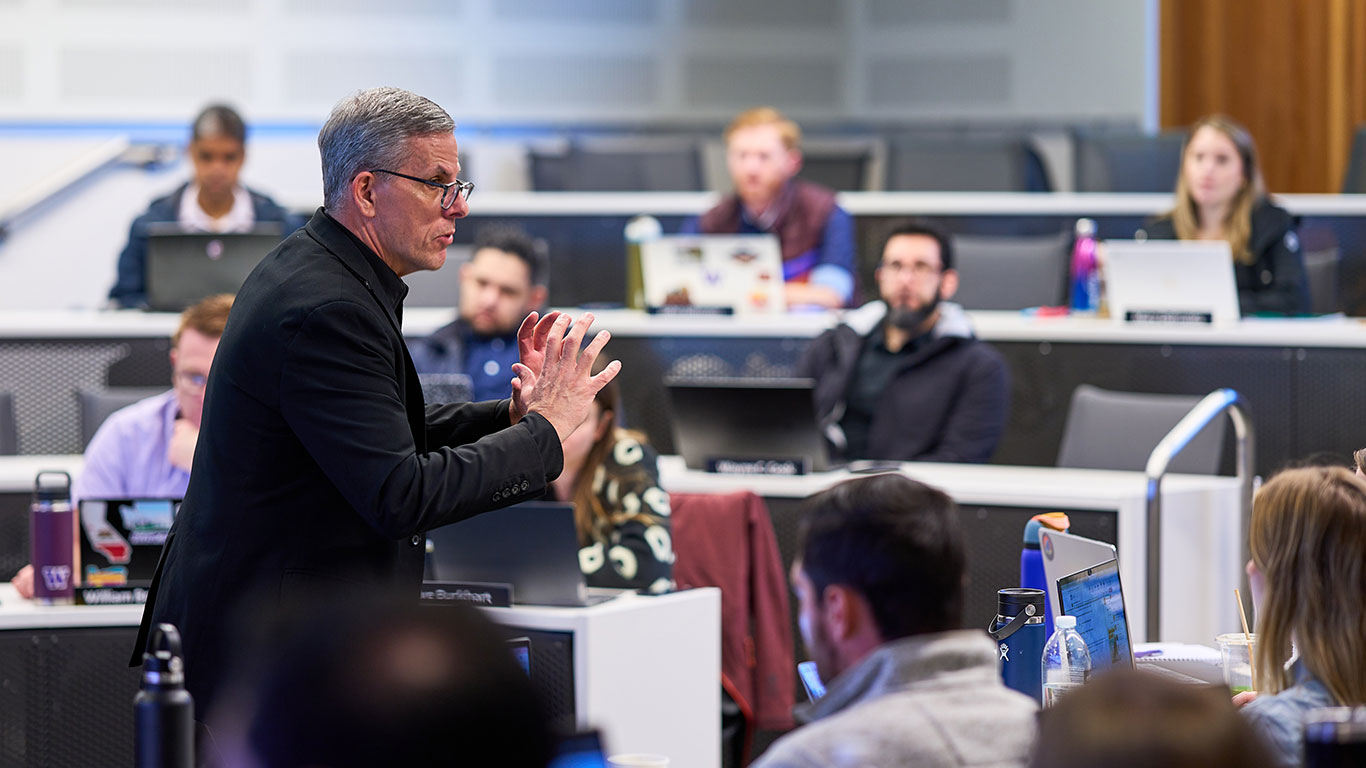The UW Engineering Leadership Institute, a new partnership of the College of Engineering and Foster School of Business, will equip mid-career engineers to lead effectively in fast-evolving industries.

Faculty of the Engineering Leadership Institute includes world-class educators such as Professor Greg Bigley, an expert in leadership, teamwork and organizational behavior at the Foster School of Business.
Engineers solve problems and innovate.
Engineering leaders solve problems and innovate — at a strategic scale, by catalyzing colleagues and teams and managing risk and return on investment.
But doing this effectively requires an enhanced skill set that goes beyond the technical.
To help develop those enhanced skills, the College of Engineering is partnering with the Foster School of Business to launch the Engineering Leadership Institute (ELI).
The ELI is designed for mid-career engineers, across all disciplines and industries, who are taking on greater responsibility to lead their organizations in an increasingly complex context.
Addressing market demand
The institute’s 15-week hybrid executive education program will equip engineers to lead at the pace of change, leveraging emerging technologies and communication techniques to drive innovation and influence strategy.
The work-compatible program derives directly from market demand, according to Cassady Glass Hastings, the College’s director of new programs and innovation. “When we ask industry leaders what types of upskilling they want to see from us,” she notes, “everyone says leadership.”
What’s good for organizations and industries will be equally good for engineers who aspire to amplify their impact within them.
Powerhouse faculty, powerful curriculum
The ELI is led by world-renowned faculty experts at the Foster School and College of Engineering, and enhanced by industry leaders from across the region — one of the nation’s most innovative engineering hubs.
The wide-ranging curriculum spans innovation, financial analysis, enterprise AI, business strategy, organizational change, problem-solving, collaborating across teams, negotiation and advanced communication techniques.
And the program culminates in an in-person case competition to solve a dynamic, real-world leadership challenge involving the impact of AI on engineering teams and organizations. Program teams will present their solutions to a judging panel of industry leaders.
A force multiplier
Glass Hastings says that the College’s initial public offering of executive education is designed to produce engineering leaders — across all disciplines — whose technical expertise is augmented by advanced leadership skills that will drive organizations and industries forward.
Or, to put it another way, the ELI can serve as a force multiplier in the careers of those who aspire to shape the future of engineering.
“The Engineering Leadership Institute will equip professionals to lead with confidence,” Glass Hastings adds. “It will build the skills needed to harness emerging technologies, drive innovation, manage high-impact teams and influence decisions-makers in rapidly changing environments.”
Important deadlines
Originally published September 17, 2025